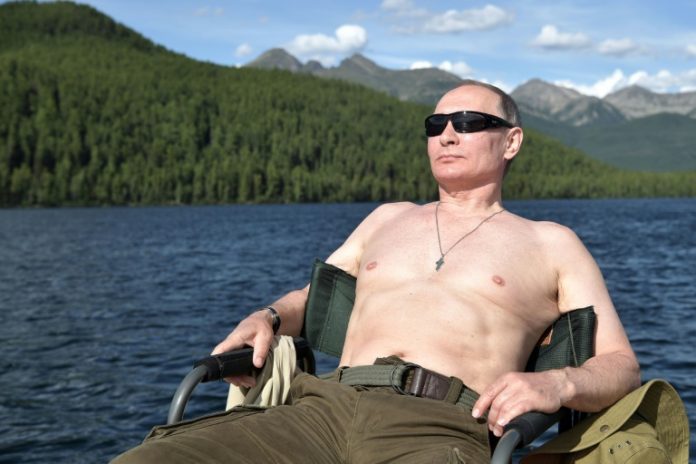Twenty years ago on Friday, Russian president Boris Yeltsin appointed his fourth prime minister in less than 18 months: Vladimir Putin, then a relatively unknown security services chief with scant experience of politics.
The departing Yeltsin was casting around for a successor and few could have predicted that two decades later Putin would still be ruling Russia, having taken on a dominant role in world affairs.
But the anniversary comes at a time of uncertainty in the leader’s reign.
Putin’s approval ratings remain at a level most Western leaders would envy but they have taken a hit from a stalling economy and declining living standards.

A protest movement in Moscow has meanwhile seen thousands arrested in recent weeks — the largest crackdown since a wave of demonstrations against Putin returning to the Kremlin in 2012 after another spell as prime minister.
The 66-year-old is meanwhile facing a succession drama of his own.
This is his last term in office according to the Russian constitution but — after stamping out the competition and taking control of most of the media – there is no obvious figure to replace him.
Analysts say it is unlikely that Russia’s longest-serving leader since Joseph Stalin will give up power completely when his current term ends in 2024.
The picture was very different when Putin won his first presidential election following Yeltsin’s early resignation on New Year’s Eve, 2000.
“Russia, despite its poverty and problems with criminality, was still a democratic, liberal country,” said prominent journalist Nikolai Svanidze, who often interviewed Putin at the start of his time in the Kremlin.

“After 20 years in power, he’s not limited in any way – he’s practically a sultan,” Svanidze said.
Political analyst Konstantin Kalachev said Putin started out as a liberal who was ready to work with the West but over time took a more conservative and hostile stance.
“Until the mid-2000s there was a political life in the country and elections were competitive,” Kalachev said.
After the 2004 Orange Revolution in Ukraine, which the Kremlin believed was backed by foreign governments to reduce Russia’s influence in its Soviet-era satellite, Putin’s attitude changed.
The West’s dismissive attitude towards Russia as well as its interventions in Iraq, Libya and elsewhere further disillusioned Putin, Kalachev told media.

“I believe his disappointment… was the trigger in this evolution” towards a harder line, the analyst said.
Liberal Russians, however, had concerns about their leader from the start – not only over his background in the KGB but also his harsh crackdown on Chechen separatists as prime minister.
Questions remain over a series of deadly bombings of Russian apartment blocks, which were attributed to separatists but some claim were staged by the security services as cover for further military intervention in Chechnya.
Putin’s firm response to the crisis boosted his popularity among the wider public and helped him move from acting president to elected leader, with 53 percent of the vote.
He remains popular among large swathes of the public, who see him as the man who restored Russia’s dignity following the humiliating collapse of the USSR and as a guarantee of stability after the changes of the 1990s.
Now Putin and his team are seeking a way out of the Kremlin that will allow them to maintain their influence, analyst and media commentator Gregory Bovt said.

This may be through the creation of a new institution rather than a short return to the role of prime minister to get around constitutional term limits on the presidency, as in 2008, according to Bovt.
“Some sort of collective body will be created to direct the country, and Putin will always remain the head,” he said – a similar system to ex-Soviet Kazakhstan, where longterm ruler Nursultan Nazarbayev stood down but continues to call the shots.
But if this happens, Putin will likely be far removed from the day-to-day running of Russia.
“He will remain watching over the country… his task is to fulfil his historical mission,” Bovt said.
















